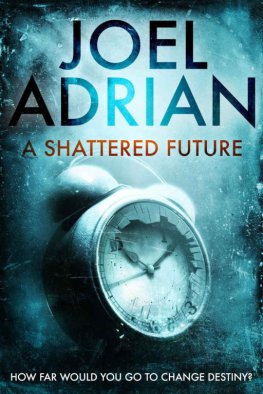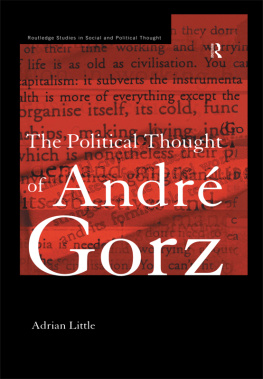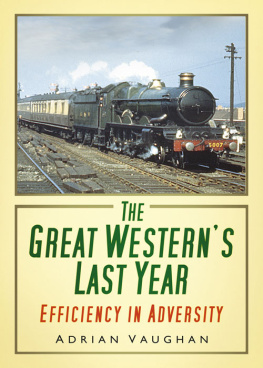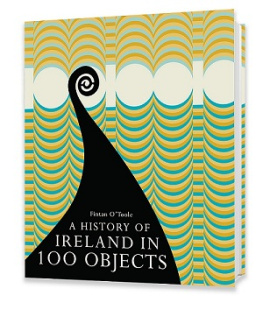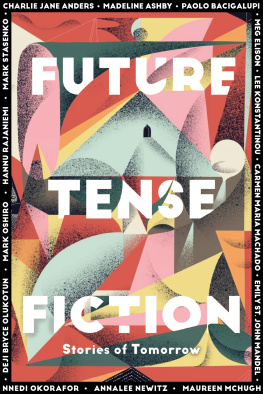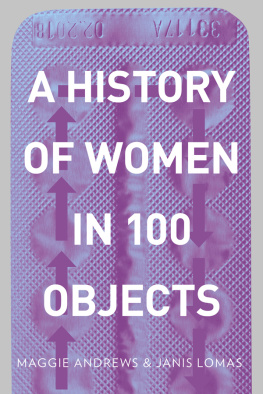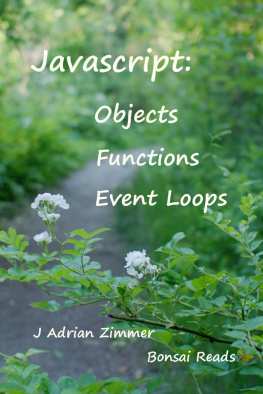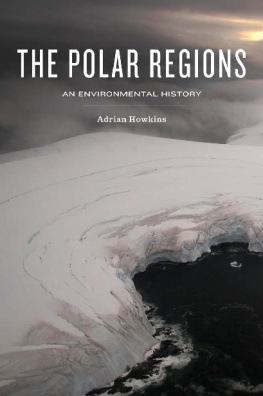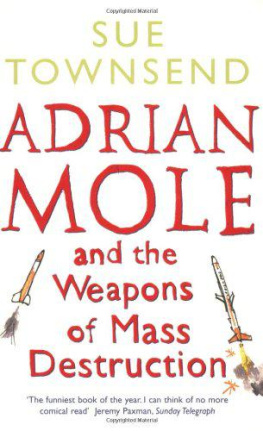Adrian Hon - A New History of the Future in 100 Objects A Fiction
Here you can read online Adrian Hon - A New History of the Future in 100 Objects A Fiction full text of the book (entire story) in english for free. Download pdf and epub, get meaning, cover and reviews about this ebook. year: 2020, publisher: MIT Press, genre: Science. Description of the work, (preface) as well as reviews are available. Best literature library LitArk.com created for fans of good reading and offers a wide selection of genres:
Romance novel
Science fiction
Adventure
Detective
Science
History
Home and family
Prose
Art
Politics
Computer
Non-fiction
Religion
Business
Children
Humor
Choose a favorite category and find really read worthwhile books. Enjoy immersion in the world of imagination, feel the emotions of the characters or learn something new for yourself, make an fascinating discovery.

- Book:A New History of the Future in 100 Objects A Fiction
- Author:
- Publisher:MIT Press
- Genre:
- Year:2020
- Rating:5 / 5
- Favourites:Add to favourites
- Your mark:
- 100
- 1
- 2
- 3
- 4
- 5
A New History of the Future in 100 Objects A Fiction: summary, description and annotation
We offer to read an annotation, description, summary or preface (depends on what the author of the book "A New History of the Future in 100 Objects A Fiction" wrote himself). If you haven't found the necessary information about the book — write in the comments, we will try to find it.
Adrian Hon: author's other books
Who wrote A New History of the Future in 100 Objects A Fiction? Find out the surname, the name of the author of the book and a list of all author's works by series.
A New History of the Future in 100 Objects A Fiction — read online for free the complete book (whole text) full work
Below is the text of the book, divided by pages. System saving the place of the last page read, allows you to conveniently read the book "A New History of the Future in 100 Objects A Fiction" online for free, without having to search again every time where you left off. Put a bookmark, and you can go to the page where you finished reading at any time.
Font size:
Interval:
Bookmark:
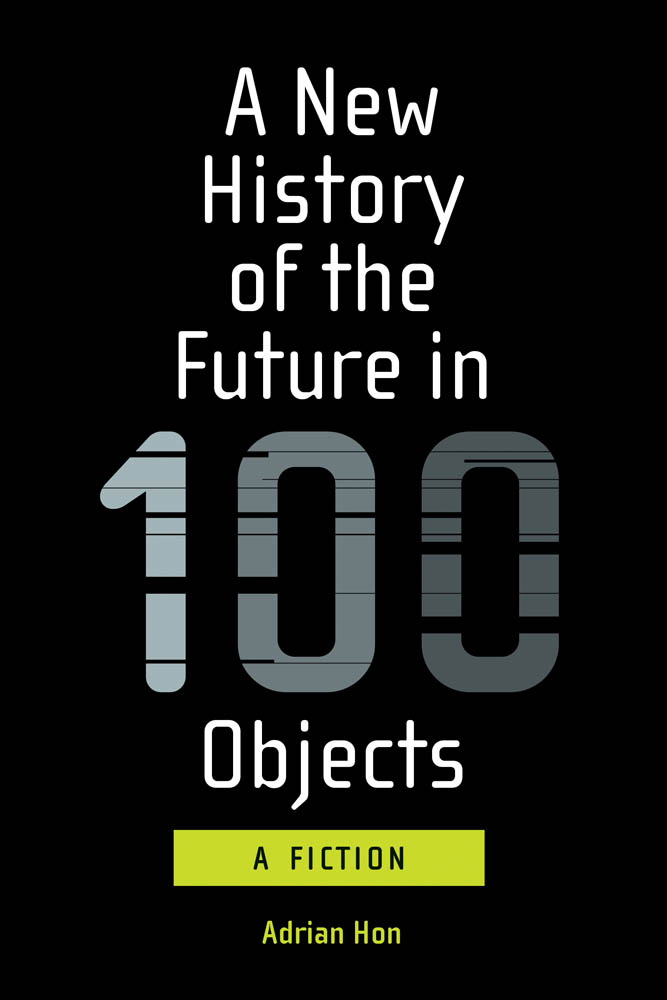
A NEW HISTORY OF THE FUTURE IN 100 OBJECTS
A Fiction
Adrian Hon
The MIT Press
Cambridge, Massachusetts
London, England
2020 Adrian Hon
All rights reserved. No part of this book may be reproduced in any form by any electronic or mechanical means (including photocopying, recording, or information storage and retrieval) without permission in writing from the publisher.
This is a work of fiction. All of the characters, organizations, and events portrayed in this novel are either products of the authors imagination or are used fictitiously.
Library of Congress Cataloging-in-Publication Data
Names: Hon, Adrian, author.
Title: A new history of the future in 100 objects : a fiction / Adrian Hon.
Other titles: A new history of the future in one hundred objects
Description: Cambridge, Massachusetts : The MIT Press, [2020]
Identifiers: LCCN 2019059150 | ISBN 9780262539371 (paperback)
Subjects: LCSH: Speculative fiction.
Classification: LCC PR6108.O535 N49 2020 | DDC 823/.92dc23
LC record available at https://lccn.loc.gov/2019059150
d_r0
When we think of the future, we are really thinking about our past and present. Its therefore fitting that A New History of the Future in 100 Objects was prompted by the excellent work of the British Museum and the BBC on A History of the World in 100 Objects . There are few explorations of history that surpass it in imagination and vividness, and as soon as I finished listening to the hundredth episode, I immediately began thinking of what the next hundred objects might be.
More broadly, I owe a debt of gratitude to the writers who have inspired me: Vernor Vinge, Iain Banks, Neal Stephenson, Kim Stanley Robinson, Lewis Hyde, Ted Chiang, George Orwell, Stanislaw Lem, and many more. Without their stories and ideas, the future would be a darker place.
Thanks to my editor at MIT Press, Susan Buckley, for her invaluable advice, and the editors of the first edition, Richard Dennis and Andrea Phillips. And thanks to my agent, Veronique Baxter.
Thanks to my family, especially to my parents, Metis and Bernard Hon, and my partner, Margaret Maitland, for their support and encouragement.
Thanks to my friends, Naomi Alderman, Andrea Phillips, and Alexandre Mathy, for their advice and humor. And thank you to all of those who backed the first edition of this book on Kickstarter. Without you, this book wouldnt exist.
Why write a history of the twenty-first century?
Now that weve reached the end of the century, it may seem foolhardy for a mere human to attempt to analyze the data at our disposal. After all, were awash with information from every corner of the world, covering every second of the century. A thousand detailed histories of individuals and systems can be generated at the snap of a finger. And yet I believe that our century, as it draws to a close, demands not that we look at just the big picture but at the small details on the scale at which human lives are lived. This has been an extraordinary epoch in the story of humanity.
Every century is extraordinary, of course. Some may be the bloodiest or the darkest; others encompass momentous social revolutions, or scientific advances, or religious and philosophical movements. The twenty-first century is different. It represents the first time in our history that we have truly had to question what it means to be human. It is the stories of our collective humanity that I hope to tell through the hundred objects in this book.
I tell the story of how we became more connected than ever before, with objects like Babel, silent messaging, the Nautilus-1, and the brain bubbleand how we became fragmented both physically and culturally with the Fourth Great Awakening and the biomes.
With the Braid collective, the Loop, the Steward medal, and the re-chartered cities, we made tremendous steps forward on our long pursuit of greater equality and enlightenmentbut the locked simulation interrogations, the SudanShanghai Letter, the Collingwood meteor, and the downvoted all showed how easy it was for us to lapse back into horror and atrocity.
We automated our economy with the UCS Deliverbots, the mimic scripts, the negotiation agents, and the old drones, destroying the entire notion of work and employment in the process. And we transformed our politics with Jorge Alvarezs presidential campaign and the constitutional blueprints.
Not satisfied with the trifling benefits of smart drugs and Glyphish, we transformed ourselves even further and faster. The amplified teams, Miriam Xus lace, the javelin, and the posthumans demonstrate how Homo sapiens became something very differentand not always in the way we intended.
With our new-found abilities, we left our mark in streets and buildings and oceans and mountains all over Earth, as well as on the moon, Mars, a thousand asteroids, all over the system, and even further beyond. We did what humans do: we transformed the world. And in what will surely be our most memorable feat, we created new forms of life.
Not all of the hundred objects are physical. Some stories were best captured through the software and data that began to govern our lives or through memories and impressions. Where appropriate, I have collected and transcribed those objects for this book.
The future remains as murky as it ever has. Yet we can be certain of one thing: the next century will not be ours. It will belong to our creations, and only if they understand our achievements and our tragedies in this most swift of centuries can we hope that they will improve the next.
This book is not the history of the twenty-first century; it is only a history, and a hundred objects can only tell a fraction of our stories. Some we can be proud of. Others we might prefer to forget. My goal is that this book will give our successors some useful knowledge, some insights, or at least some amusement.
Perhaps, I hope, it might even share some guidance.
London, 2082
San Jose, US, 2020
Six months doesnt sound so bad. I mean, compared to the guys Ive met who were in for five years or 15 years, I had it good. But its still plenty long enough to lose your job. Lose your family. Even lose your friends, people you thought you could rely on. Seemed like more than enough punishment for carrying some weed.
In 2020, Ralph Turner, a 25-year-old truck driver and father of two, was arrested in San Jose on suspicion of possessing an illegal quantity of marijuana. After a short trial, Turner was convicted and given a mandatory sentence of six months in prison.
Californias prisons were full to bursting, and with the state in the midst of a severe and extended budget crisis, it couldnt afford to build any more. Faced with no alternative, the court enrolled Turner in a pilot probation program aimed at low-risk offenders.
Turner was taken to an induction center and shown a short video. His mobile phone number was entered into a computer. A technician looped a measuring tape around Turners ankle and, after a short wait, snapped a light plastic ring into place. He was free to go, albeit with certain restrictions, and inadvertently Ralph Turner became one of the first people to benefit from Americas slow turn away from its ruinously expensive and ineffective penal system.
The object Im holding right now, an ankle surveillance monitor, is a thin ring of plastic, maybe half a centimeter thick if you count the inner padding. Inside the plastic is a simple computer, a radio, and a far-field microphone array.
Font size:
Interval:
Bookmark:
Similar books «A New History of the Future in 100 Objects A Fiction»
Look at similar books to A New History of the Future in 100 Objects A Fiction. We have selected literature similar in name and meaning in the hope of providing readers with more options to find new, interesting, not yet read works.
Discussion, reviews of the book A New History of the Future in 100 Objects A Fiction and just readers' own opinions. Leave your comments, write what you think about the work, its meaning or the main characters. Specify what exactly you liked and what you didn't like, and why you think so.

